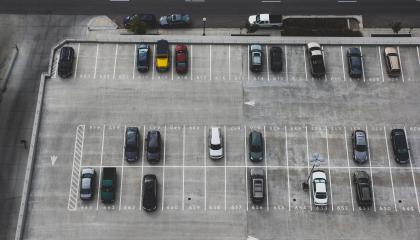Hosting a public event that is accessible and compliant with the Americans with Disabilities Act (ADA) is not only the right thing to do but also the law. Enacted in 1990, the ADA ensures that people with disabilities have equal access to public accommodations, including events. In this blog, we’ll discuss some tips for hosting an ADA-compliant public event that remains accessible to all attendees!
Preparing for college can be daunting for high school students, and when you are disabled, there are many things to prepare for after graduation. Even during the first year of high school, it’s helpful for students who are blind or have low vision to start exploring their options through the Individual Education Program (IEP). Depending on the student's interests, the IEP team might suggest attending a two-year college, vocational school, or four-year college.
The major barrier to communication with people with hearing loss is often the lack of consideration by others. For successful and effective communication, all parties need to be aware and considerate.
Even if a person uses a hearing aid, others taking part in the conversation must use valuable communication strategies.
To make the world more accessible, the ADA established a certain list of reasonable accommodation that businesses, organizations, and companies can do to better serve individuals with disabilities. Reasonable accommodation opens the world to everyone.
Legally, a reasonable accommodation refers to an adaptation to a job, such as day-to-day job tasks or modified work environment, that allows a qualified individual with a disability to work. An accommodation is considered “reasonable” if it doesn’t cause an unreasonable amount of work or money to make happen.
Connect with us
We pride ourselves on our customer service, and we'd love to hear from you! Sign up for our newsletter to keep up with industry updates and trends, as well as any new product releases.






